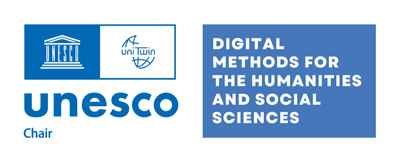The Chair
The use of digital resources and methods in the Humanities and the Social Sciences (HSS) has shown a dramatic rise in recent years. Digital collections of all sizes, along with technologies for extracting, organizing, representing, curating, managing, visualizing, linking and accessing information, on which all sorts of processing and logical and quantitative analyses can be performed, increasingly with artificial intelligence methods, are inducing a deep digital transformation of HSS. This includes enabling new research questions and approaches, novel ways of interpreting, communicating and teaching, and, eventually, their impact on society and the economy. Inherent to this transformation is the transgression of disciplinary borders and the osmosis of methodological traditions. Internationally, the digital trend in HSS has fostered new curricula and research units, and new operational modes in memory institutions, agencies, social services, and politics.
Awarded in December 2022, the UNESCO Chair on Digital Methods for the Humanities and Social Sciences has the objective to advance the digital transformation of the way of working in the Humanities and the Social Sciences within an extensive web of international collaborations under the auspices of UNESCO.
The Chair will serve as a pole for wide collaboration with universities and research centers, memory institutions, networks, research infrastructures and private organizations. Its work plan aims at:
- Fostering postgraduate education in its area.
- Promoting inter- and multi-disciplinary research.
- Supporting the creation of communities of practice.
Through its work, the Chair aspires to contribute to UN Sustainable Development Goals (SDG) 4 “Quality education”, 5 “Gender equality”, and 17 “Partnerships for the Goals”.


